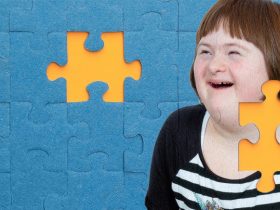Autism, also known as Autism Spectrum Disorder (ASD) is a developmental condition that affects the nervous system, hindering their ability to communicate and interact. [1] This illness is incurable but can be well-managed via treatment. It is a fairly-rare chronic condition and is usually life-long. It is a serious health condition that requires a medical diagnosis.
Common symptoms of ASD include:
- Difficulty speaking.
- Social isolation or awkwardness.
- Obsessive interests.
- Repetitive behaviors like hand-flapping, rocking, jumping, or twirling.
- Hyperactivity like fidgeting or constantly moving
- Fixed attention on certain activities
- Extreme sensitivity to touch, sound, or light
- Delayed speech and language skills – autistic children may take significantly more time compared to others before starting to talk.
- Gross motor problems like clumsiness or an uncoordinated gait.
- Fine motor problems like mishandling objects.
- Dysgraphia, also known as disabled handwriting is a common symptom of ASD.
Some Known Causes of ASD

Genetics: Genetic changes can increase the risk of autism in the child. If a parent carries one or more of these faulty genes, it can pass on to the child. Please note that the parent doesn’t have to have autism to carry these faulty genes. Genetic changes can also occur in the sperm or egg during fertilization. These changes aren’t the direct cause of autism, but they can increase the risk levels.
Environmental Factors: For people with a genetic predisposition to ASD, environmental conditions can significantly increase or reduce the risk of developing the disease.
Aged Parents: If one or both parents are advanced in age at the time of conception, it increases the child’s risk of developing ASD.
Pregnancy Complications: Babies that are born severely premature with very low weight are at a high risk of developing autism.
Multiple Pregnancies: One or more of the babies that are born as twins, triplets, quadruplets, or sextuplets at a high risk of suffering from ASD.
Folic acid supplements as prenatal vitamins are usually prescribed for pregnant women to prevent certain brain defects in the baby, including autism. With the right treatment, you can witness a remarkable improvement in the symptoms of autism in your child. [2]
Here are some effective treatments for Autism.













